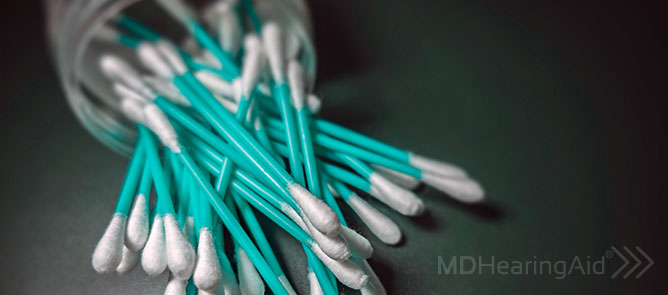Do you experience popping or crackling sounds in your ear? Does it cause pain, discomfort, or general annoyance? Does it affect your ability to hear? Ear popping can occur for different reasons, some more serious than others.
Learn more about ear popping, including how to recognize it, what causes ear popping, and how to know when it’s time to speak with your doctor or hearing specialist.
Normal vs. Unhealthy Ear Popping
‘Popping’ your ears to relieve pressure and a popping or crackling sound in your ears are not necessarily the same thing. You may experience the occasional ear pop, which is completely normal and likely not something to worry about. This is especially true if there is a clear explanation why your ears popped, such as changes in altitude.
‘Popping’ in your ears can occur when the pressure in your ears needs to balance to keep your eardrum from expanding or contracting more than usual. If your ears feel plugged and they ‘pop,’ the popping noise indicates the pressure in your ears has changed, and it often feels like a relief.
Changes in altitude, such as when you’re flying on a plane or ascending a steep hill, can cause this plugged feeling due to the pressure difference between the outside air and the space in your middle ear.
Most of the time, this pressure is the same. But when you experience changes in altitude, the pressure in the outside air decreases while the pressure in the middle ear stays the same. This change causes the air sealed in your middle ear to expand, putting pressure on the eardrum and affecting your ability to hear or making your ears feel plugged or clogged. ‘Popping’ your ears relieves this pressure.
How to ‘pop’ your ears:
- Chew gum
- Yawn
- Swallow
- Exhale with your nostrils and mouth closed
If you regularly hear a popping sound in your ears, this is likely not caused by changes in altitude. It could suggest a blockage in your ears or another underlying condition.
What Causes Ear Popping?
Earwax Buildup
Earwax is a natural lubricant that protects our ear canals from infection. Although it usually moves out of our ears on its own, sometimes earwax becomes stuck, causing a blockage in our ears. This can be caused by Q-Tips and cotton swabs that push the earwax deeper into our ears or by our ears producing more earwax than required.
Typical symptoms associated with earwax buildup:
- Popping or crackling sounds in our ears
- Itching
- A feeling of fullness in the ears
- Pain and discomfort in the ears
- Partial hearing loss
Common causes of earwax buildup:
- Using cotton swabs to probe and clean our ears
- Our ears producing more earwax than needed
Treatments for earwax buildup:
- Earwax removal by a doctor (with a curet, suction, water pick, or rubber-bulb syringe filled with warm water)
- Earwax removal medication (only when recommended by a doctor)
- Using an ear dropper filled with mineral oil or baby oil (only when recommended by a doctor)
Eustachian Tube Dysfunction
Eustachian tube dysfunction (ETD) is a relatively common condition that occurs when your eustachian tubes become blocked.
The eustachian tubes are small tubes that run between the middle ears (behind the eardrum) and the upper throat. Eustachian tubes equalize ear pressure, drain fluid from the middle ear, and prevent ear infections in the middle ear. The eustachian tubes only open when we chew, swallow, or yawn. Otherwise, the tubes remain closed.
Eustachian tubes are very small, and they can become plugged or clogged for many different reasons. When the tubes do not open and close properly, it causes a feeling of fullness in the ears, clicking or popping sounds, pain, and hearing difficulties.
The severity of the condition usually depends on its cause. Sometimes, the condition resolves on its own or with easy treatments performed at home. If you frequently deal with ETD or your ETD is severe, you may require a visit to the doctor.
Typical symptoms associated with ETD:
- Feeling of fullness in the ear
- Blocked or plugged feeling in your ears
- Changes in hearing and hearing loss
- Clicking or popping sounds
- Ticklish feeling inside the ear
- Pain or discomfort
- Dizziness
- Ringing in the ear
Ear popping sometimes gets mistaken for tinnitus. Talk to your doctor if you think you have tinnitus and read our latest article on tinnitus treatments.
Common causes of ETD:
- Allergies and illnesses that inflame or clog your eustachian tubes with mucus
- Changes in altitude caused by hiking, plane rides, elevators, or driving through mountains
Treatments for ETD:
- Exaggerated yawning
- Chewing gum
- Swallowing
- Saline nasal spray
- Exhaling with your nostrils and mouth closed
- Antibiotic ear drops or oral tablets (if caused by an infection and recommended by a doctor)
Cases of ETD are often resolved after a few days. If the ETD is due to an infection, it may take up to two weeks before symptoms pass.
Temporomandibular Joint and Muscle Disorders (TMJ or TMJD)
The temporomandibular joint is on both sides of your head in front of your ears. It connects the lower jaw (mandible) to the skull and enables the jaw to open and close. A TMJ disorder causes tenderness in the joint, difficulty moving the joint, or facial pain.
Since the temporomandibular joint is so close to your ears, it may cause you to think the popping sound is coming from your ears. Although TMJ disorders can cause popping sounds, these sounds come from your jaw, not your ears. Pay close attention to where the popping sounds come from.
TMJ disorders are very common and treatable, but there are a number of different causes for TMJ disorders, which makes diagnosing them difficult.
Typical symptoms associated with TMJ disorders:
- Clicking or popping sounds
- Pain in the face or neck
- Stiffness in the jaw
- Locking of the jaw
- Malocclusion (changes in the way the upper and lower teeth align)
Possible and common causes of TMJ disorders:
- Grinding your teeth
- Erosion of the joint
- Arthritis
- Using orthodontic braces
- Poor diet
- Chronic lack of sleep
- Stress
At-home treatments for most TMJ disorders:
- Eating soft foods
- Jaw-stretching exercises
- Reducing stress
- Building a consistent sleep routine
- Avoiding gum and chewy foods
Treatments for prolonged or serious TMJ disorders:
- Medication (to reduce pain, swelling, or promote jaw relaxation)
- Bite guards to prevent teeth grinding
- Botox
- Corrective dental treatment
- Surgery
Should You See a Doctor?
In many cases, ear popping is completely normal and a natural process that occurs when your body changes altitude. If your ears frequently pop without an explanation, or if you often hear a crackling sound in your ear, you should speak to your doctor.
Pain or unmanageable discomfort in the ear is not normal, and it could require treatment from a doctor or hearing specialist. Bearing through symptoms of pain and discomfort does more harm than good.
Early treatment is often the most effective solution, so don’t delay seeking medical attention if you experience any of the signs below. Contact your doctor or visit a hearing clinic as soon as possible.
Signs you should speak to your doctor:
- You experience persistent symptoms of ear popping or crackling
- You experience ear popping without any clear explanation, such as a change in altitude
- You experience pain or discomfort due to regular ear popping
- You experience repeated or ongoing ringing in your ears
- Your ears regularly feel blocked or plugged
- Your ear blockage hinders your ability to hear
Final Thoughts
Occasional ear popping occurs when the pressure in your middle ear needs to equalize with the pressure outside of the ear. This ‘pop’ in your ears is natural and does not need to cause concern.
If, on the other hand, you regularly hear popping or crackling sounds in your ear and you don’t know why, it is important to contact your doctor or hearing specialist to determine the root cause. Your symptoms may be due to a blockage or buildup of earwax in your ear, or it may be a more serious issue that needs medical attention.
Do not take your ability to hear for granted. Since our hearing naturally declines as we age, it is important to regularly assess your hearing health and test your hearing.
The free hearing test from MDHearing only takes 8 minutes to complete. It’s available online and will provide important personalized information about your hearing.
At MDHearing, we’re always available to answer your questions about your hearing concerns. Our team of specialists can also tell you whether our FDA-registered, affordable hearing care solutions are a good match for your specific needs.
Check your hearing for free and get your results instantly.
TAKE ONLINE HEARING TEST


